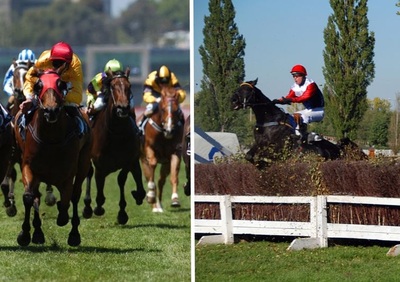 Horse Racing as a competitive sport has existed for thousands of years, even as far back as the time of Ancient Egypt. Its continued prominent existence is largely thanks to betting, however.
Horse Racing as a competitive sport has existed for thousands of years, even as far back as the time of Ancient Egypt. Its continued prominent existence is largely thanks to betting, however.
Horse racing is very much a gamblers’ sport, with most people who watch live horse racing staking some amount of money on the action.
There are of course people who go for a family day out or because they simply love watching horses run at full gallop but betting income is what keeps the sport alive.
In Britain, gambling firms contributed around £384m of the sport’s income through media rights, levy and sponsorship in 2022.
This close relationship between gambling and horse racing is not limited to Britain but can also be seen in other places such the USA, Ireland and Australia where horse racing enjoys much betting interest.
How to Bet on Horse Racing
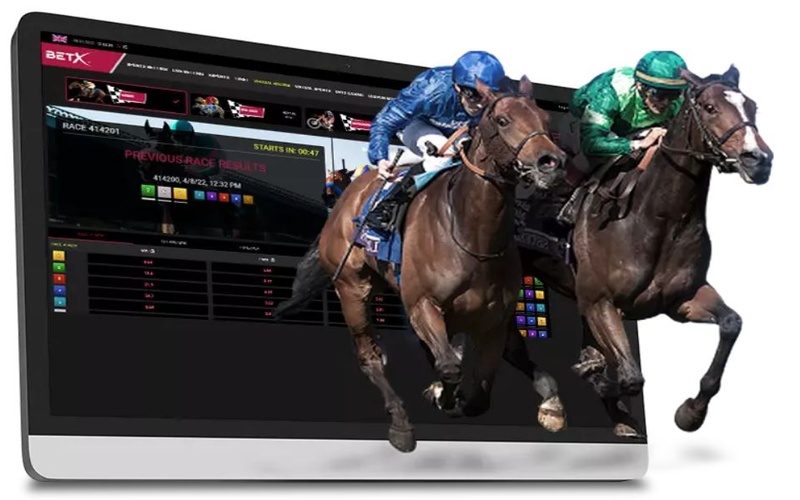
In the countries where horse racing enjoys its largest fan bases, the racing schedules tend to be rather busy. In Britain, there are roughly 1,000 race meetings held during the year across 59 different venues. The likes of France and Australia also have hectic racing schedules so there is rarely a long wait for the next race.
Unlike other sports with standardised pitches and numbers of competitors, horse racing can vary massively. One race could have four runners competing on a five-furlong straight track, the next could have twenty runners on an undulating course battling away over three miles with fences to negotiate. When you also factor in things such as track conditions and any handicapping/penalties, each horse race has a lot of key variables to consider.
It is for this reason that it is important to do your research before parting with your cash. You can learn a lot by checking the past performances of runners and by trying to discover if an upcoming event is likely to suit them. In races with young horses, who have no or very few past performances, this is admittedly a harder task. For these races, although you can look at their cost and/or breeding, the best guide you have available will be the betting.
If some debutant horse is trading at 100/1, you can usually trust the bookmakers that this is not a decent runner (unless you know something the bookies don’t, of course).
Main Bets on Horse Racing
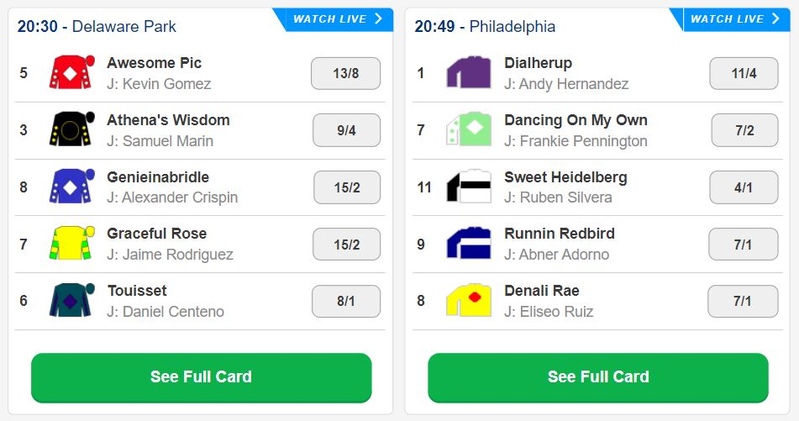
Compared to most other sports, horse racing does not have a huge offering when it comes to different markets. That said, at most betting sites you will not find yourself limited to just betting on the race winner. If this is all you see, trying again closer to the time of the race could well reveal a few more options, including some of those listed below.
The market offering that most big bookmakers provide is relatively consistent across races, so no matter how big or small, similar options are available. Having said that, the very biggest races may come with enhanced terms and some special bets, but there do not tend to be massive differences. Here are the main betting markets you will likely encounter for most races.
- To Win – Your most standard horse racing bet, this being simply putting your money on the horse you think will win a given race.
- Each Way – An each way bet is a two-stake bet with one stake going on the horse to win and the other stake covering to ‘place’. Bookmakers should clearly state the each-way place terms such as a 1-2-3 finish paying out at 1/4 odds.
- To Place/Top Finish – Here you pick a horse to finish within the specified top x places, for example the top three.
- Place Insurance – A bet on your selected horse to win but your stake is returned should they finish within a place insurance spot. The more places the insurance covers, the lower the odds.
- Betting without X – Almost like a standard ‘to win’ bet only here the performance of one horse, usually the favourite, is excluded. This means that should the favourite win, the winner of this market is the runner that finishes second.
- Unnamed Favourite – If you want to trust the market you can back the unnamed favourite and sometimes the unnamed second favourite at the starting price odds (SP).
- Winning Margin – Not only must you pick the winning horse but you must select by what distance it will win from the available options. This tends to involve betting on x or more lengths, rather than saying under x lengths.
- Forecast – With a forecast you need to pick the two top finishers in the race. This can either be in the precise order (a straight forecast) or you can select either order (also known as a reverse forecast). Returns are always larger when picking the correct order.
- Tricast – Just like a forecast, only you have to pick the top three runners, again either in the exact order (straight tricast) or any combination (reverse tricast).
With most horse racing markets, you will be placing a bet at fixed odds so you know what your minimum returns will be (payouts can sometimes be higher if a best odds guaranteed promotion applies).
There are a couple of exceptions though, one being when backing an unnamed favourite or second favourite. The other is when placing a forecast or tricast bet. Although it is possible to back these at fixed odds, some betting sites calculate winnings after the race using the official starting prices.
Other Types of Bet
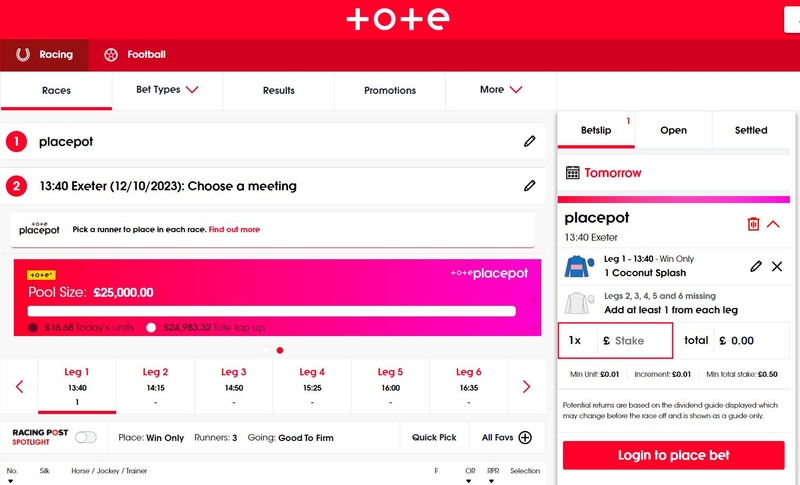
In addition to your standard on-the-day bets mentioned above, horse racing also comes with a range of other betting options.
Tote Betting
Tote betting has existed for around 100 years. Rather than placing a bet at a fixed price, for example 4/1, you will betting not knowing what your returns will be. This is because the Tote betting operates as a pool betting provider. They collect money from all the punters who have chosen the same market and pay out the winners proportionately out of this prize pot (minus their commission). If few fellow punters picked the winning selection, prize offerings can comfortably exceed those provided by bookmakers. On the other hand though, returns can be lower when a popular selection triumphs.
With the Tote’s pool betting system, you can bet online or at the racecourse itself. There are various tote markets too such win/place, exacta (top two horses) or trifecta (top three horses). These are the ‘single leg’ options but you can also go for multi-leg options that cover multiple races. With the placepot for example, your job is to pick placing horses across every race during a particular meeting. Similarly, there is quadpot, which is like placepot, only it covers races three to six of a meeting.
Ante-Post
With ante-post betting you can place your bets on a race before the final declarations are made, often a long time before. For the biggest races on the calendar, bookmakers will gladly allow punters to make early selections on who they think will win. It can result in punters being able to get considerably better odds than what ends up being available by the time of the race. Such bets are not without risk though as should a selected horse not feature in the contest, for whatever reason, this will be a losing bet. Non-runner bets are only refunded if placed after the final declarations.
Specials
Given the interest in horse racing and the relatively small number of markets, it is perhaps no surprise that betting sites try to bolster their offering. Many do this by offering regular ‘special bets’ based on the upcoming action. These can include things such as a trainer or jockey to record three or more wins during the day or three selected horses all to finish in the top four of their respective races. There can be a lot of variety here and you may find some of these special bets offer real value for money.
As well as ‘daily’ specials, you can also make longer-term bets. These can be things such as a named horse to win two major races during the upcoming season or the winner of an individual award. Although individual accolades are not a huge part of horse racing you still have Jockey Championships and Trainer Championships that you can bet on.
Important Rules for Horse Racing Betting
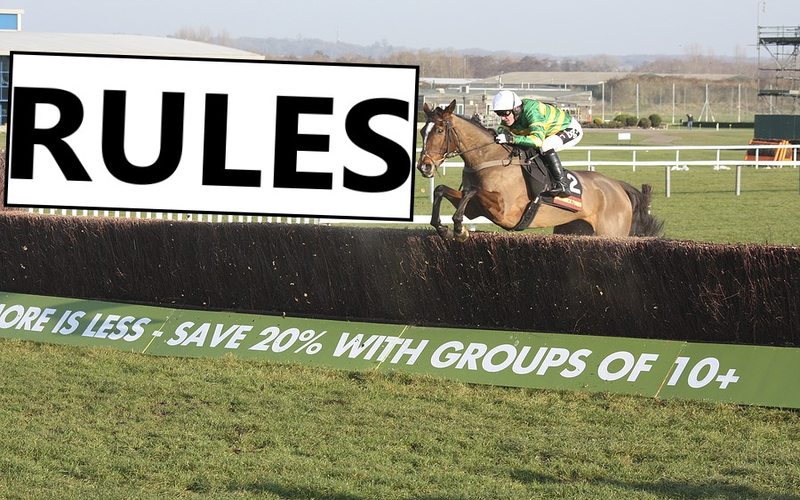
Before you place your horse racing bets, it is wise to familiarise yourself with the standard betting rules listed below.
- Each Way Terms – When placing an each way bet, note that the standard terms on places and odds vary depending on the field size and if it is a handicap race.
- Extra Places – For some races, bookmakers will offer extra places in their each way terms while keeping the odds the same.
- Non-runner – If you bet on a horse (and it isn’t an ante-post bet) that ends up being a non-runner, your bet will be refunded. If another horse withdraws instead, your payout may be reduced as per Rule 4 deductions which is an industry-wide rule.
- Rule 4 – When a horse at shorter odds pulls out of the race after final declarations, Rule 4 may be applied to reflect the new chances each horse has of winning. Depending on the odds of the horse, a percentage of any winnings will be deducted to keep things fair – anything from 5% to 90%. A long odds horse being withdrawn late would not have an impact and thus not trigger Rule 4, but a horse with a strong chance of winning definitely would.
- Best Odds Guaranteed – Some bookmakers operate a best odds guaranteed policy for horse racing action in selected countries. All this means is that if you back a horse at fixed odds during the qualifying window, and it wins, you may receive a larger payout. This will occur if the official starting price (SP) was higher than the fixed-odds price.
- Void Bets – All bets are void if a race is abandoned, moved to a different venue, takes place at a later date or the distance changes from that initially advertised.
- Dead Heats – Should two (or potentially more) horses cross the line at the same time, dead heat rules apply. This means you will be paid out as a winner but on a reduction of the initial stake and hence return.
- Final Decisions – Bets will be settled when the winning horse has ‘weighed in’ immediately following the race and following the result of any Stewards Enquiries. Once the result is announced this is final, and later disqualifications will not impact bets.
Horse Racing Betting Guides
If you have ever looked at a race card and wondered what on earth was going on, been baffled by tote betting, or just want to expand your knowledge on betting on the horses, then this page is for you.
We have articles covering every facet of the sport of kings, and they are all presented in simple language as 5 – 10 minute reads, so you can work your way through them at your own pace and know all there is to know about horse racing betting by the end.
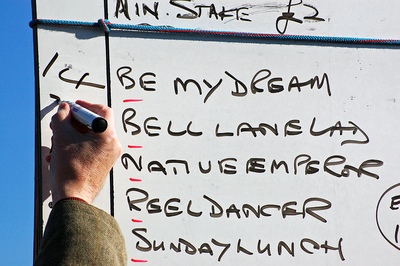
What is a Joint Favourite or Co-Favourite in Horse Racing?
Beginners to horse racing will pick these concepts and their abbreviations up very quickly indeed, as they are used all the time. Some people think the favourite is decided by horse racing experts, but in fact, it is the betting public pushing the odds that is the deciding factor.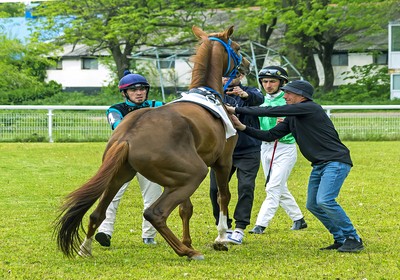
Can a Jockey Remount Their Horse if They Fall Off?
The old phrase 'get back on the horse' couldn't be more fitting than for this article. What was once left to the individual to decide is now governed by actual rules within racing, with safety at the heart of that decision. Remounting is allowed only before the race, not during.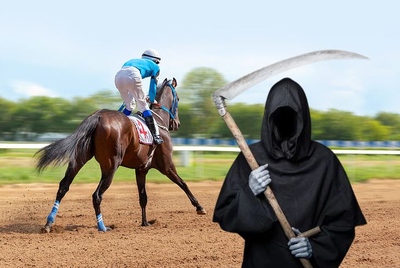
What Happens if a Jockey Dies During a Race & the Horse Wins?
A dramatic title for an article you might think, but guess what? It has happened. This article also covers less tragic circumstances though.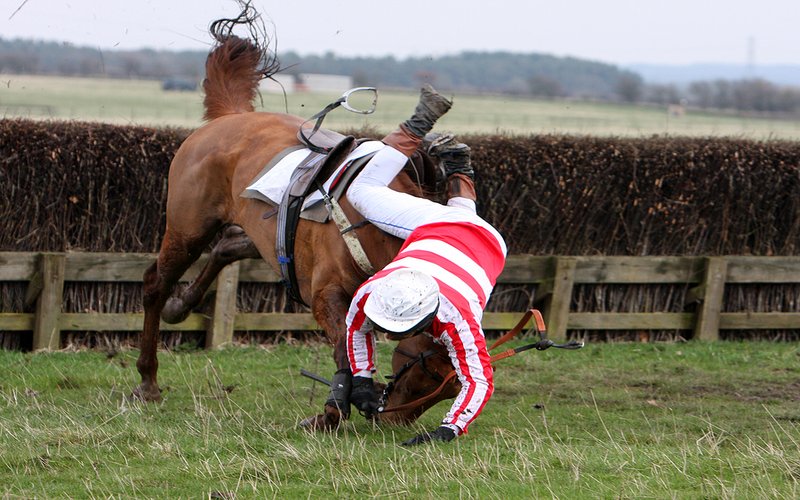
What's the Difference Between Fell, Unseated & Brought Down?
A horse hitting the deck during a race is bad news for your bet, but it's not always the fault of the horse or the rider, and so being able to understand the nature of the accident when studying the race card is important if you want to make savvy betting decisions.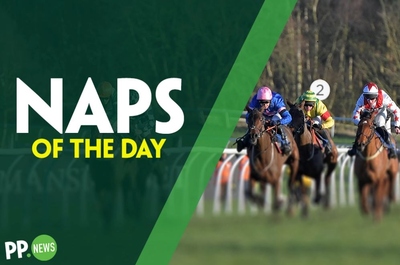
How Often Do Naps Win in Horse Racing?
Not everyone feels confident in researching which horses to bet on (and some of us just can't be bothered let's be honest), and often times tipsters will be the answer. Anyone who has taken this approach will have seen the term 'nap' next to a horse or two, but do you know what it means?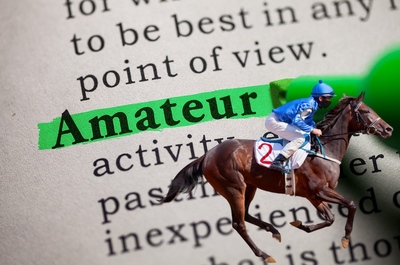
Everything You Need to Know About Amateur Jockeys
The word 'amateur' can sometimes be taken as meaning 'less skilled', but this is not necessarily the case with amateur jockeys. While they may not take a fee for riding, amateur jockeys have won some of the biggest competitions the sport has to offer, even going up again professional jockeys.
What is Point-to-Point Racing?
Before the days of professionally maintained racetracks and fully trained groundsmen, people used to race across the countryside from one 'point' to another 'point'. This was, and has remained an amateur activity, but one that you can bet on nonetheless.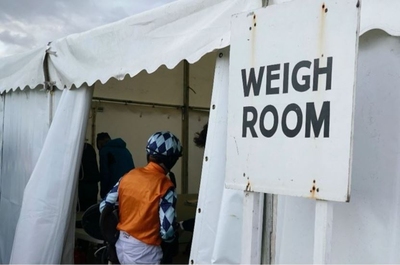
Jockey Weighing In & Weighing Out Rules
You have probably heard of handicapping, but you might not have known that the weight of the jockey contributes to this calculation. The weighing process is tightly controlled, both before and after a race.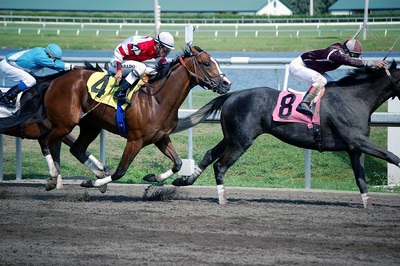
How Fast Do Horses Run in a Race?
A lot can impact the speed of a race horse, not least the weight of the jockey which is an unavoidable extra that slows them down. On top of this though, distance and horse breed are considerations, and their speed is relative to whatever they are being compared against.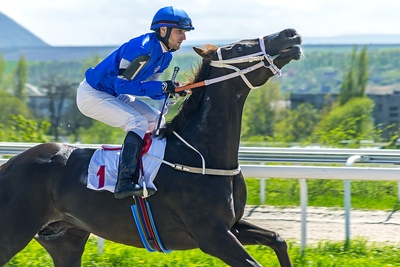
What Does Pulled Up Mean in Horse Racing?
Bettors are right to pay attention to horses that have pulled up (PU on the racecard) in the past, but each case should be judged on its own merits. After all, even some of the biggest names in the sport have been pulled up in the past, so understanding the finer details is important before making any betting decisions.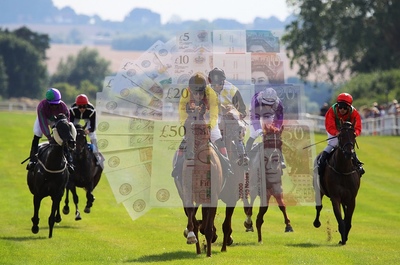
Prize Money in Racing: Where Does It Come From?
Bettors are interested in how much they can win from their bets, but what about the owners, jockeys and trainers who are responsible for successful horses? Where does the money they win come from and how is it distributed?
Do You Have to Pay to Enter a Horse Race?
The horse racing business is all about money, and owning a horse is expensive even before that horse is entered into a race. There are many costs involved including the race entry fee, but of course the reward will far outweigh the costs if the horse is successful.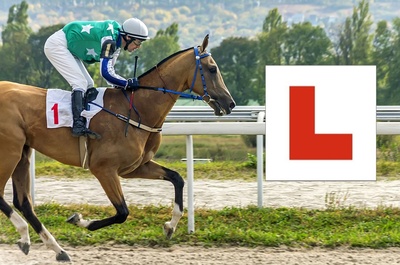
What Are Maiden, Novice & Introductory Horse Races?
Young horses, just like young people, need to train and practice in order to learn their trade and improve in ability. The best way for them to do this is to compete with each other and horses that are not too far ahead of them. Enter maiden, novice, and introductory races.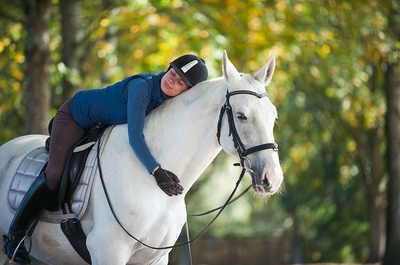
Amateur Horse Races: What Are They & Can Anyone Enter?
In this case, the word amateur relates to the jockey, not the horse. This means experience and ability can vary wildly in amateur races, but that doesn't mean they are no good. There have been many excellent amateur jockeys, many of whom have gone on to become professionals.
Can Anyone Enter a Horse in a Race?
It may feel like owning a racehorse is just a pipe dream without a fortune in the bank, but there are ways of making it much more affordable if you go looking for them. You don't need to be anyone special to enter a horse into a race, but there are plenty of rules and regulations to follow once you get your hands on one.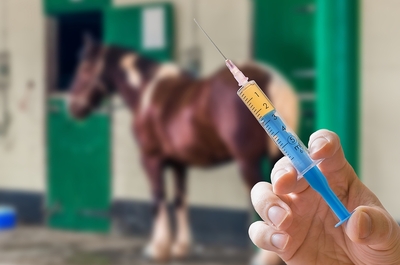
Drug Testing In Horse Racing: How Common Is Doping?
Horse racing may have something of an unfair reputation for this sort of thing, but actually, the stats tell a different story. What's more, the classifications as to what counts as doping include anything and everything, not just deliberate attempts at cheating.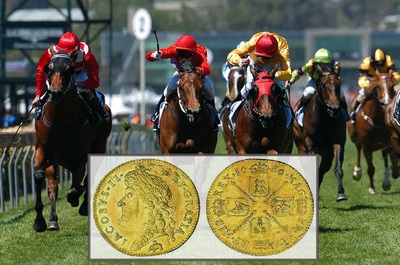
Why Are Horses Priced in Guineas?
A leftover from the real olden days of horse racing, the guinea may no longer exist as legal tender but it is still used as a unit of value when it comes to buying and selling horses. Is there a good reason why this outdated amount is still in use in the sport?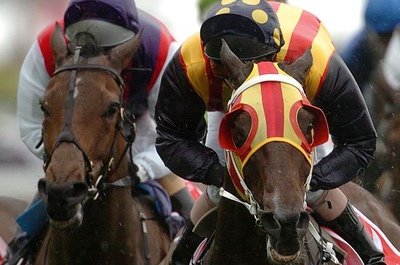
Horse Racing Headgear: What Are Blinkers, Cheek Pieces & Tongue Straps?
It's quite possible that you have never paid too much attention to a horses headgear, but the most diligent of horse racing bettors will know exactly what their horses is wearing, and will know how to find that info on a racecard.
What Are Auction, Claiming & Selling Races?
Among the myriad of different types of horse races out there, auction, claiming, and selling races are arguably the least well understood. All horse races are aimed at a specific type of horse, or are run for specific reasons though, and these are no different.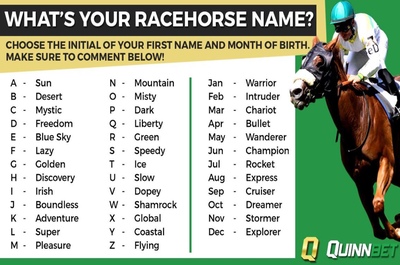
Naming Racehorses: Can You Call A Horse Whatever You Like
Knowing the sense of humour in this country, you won't be surprised to find out that race horse names need to fit certain guidelines and be signed off before they can be used. You can get pretty creative with the name you choose, but it's not a free for all.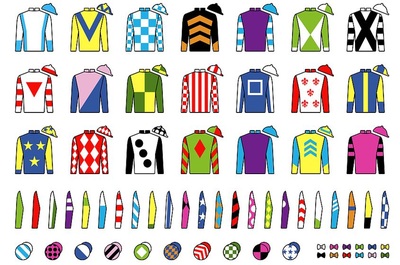
Jockey Silks Explained: What Do They Represent & Are They Unique?
Jockey silks aren't just there to look pretty on race day, they serve a real purpose too. There are even rules surrounding the design of the silks and some designs can be sold for thousands of pounds. You can even create your own in a few minutes using free software online.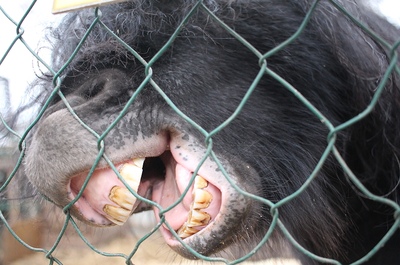
What Happens When a Horse Bites in a Race?
Not something that springs to mind when choosing which bets to place, nevertheless biting does occasionally take place before or during a horse race. We look at past occurrences and also investigate the rules surrounding chomping horses.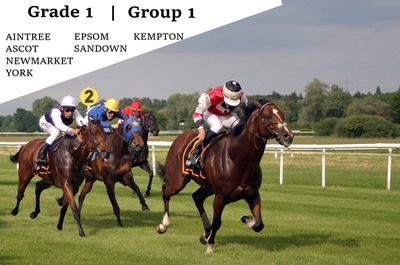
Which Racecourses Offer Grade 1 or Group 1 Races?
For anyone wanting to see only the very best of British horse racing, grade 1 and group 1 races are the ones to watch. There are some extremely famous races in this article, but also some you may not be so familiar with.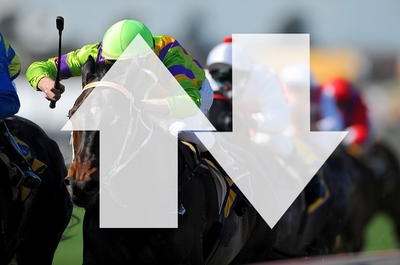
What Are Steamers & Drifters in Horse Racing?
Horse racing terminology can be baffling at the best of times, and these two are prime examples. We explore what they are, why they happen, and how to score a net win from steamers and drifters.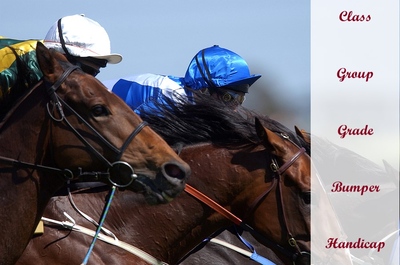
Horse Racing Classifications: How Do Race Grades & Classes Work?
The world of horse racing can be a confusing place for the uninitiated, what with all the class's, grades, groups, weights and official ratings to contend with. Once you understand how everything is structured though, you can digest a lot of race information in very little time.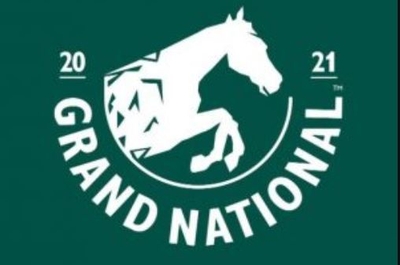
How to Bet on the Grand National: A Beginner's Guide
The biggest horse race of the year provides many things; more excitement, a bigger field, better than average odds, etc. However, with so many horses to choose from your betting strategy should probably be adapted too in order to give yourself the best chance of making it out with a net win. Here's how.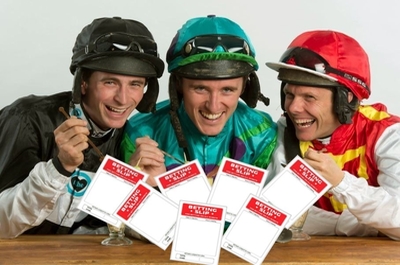
Can Trainers and Jockeys Bet on a Horse Race?
As professionals who are actively involved in the races we all bet on, is it right that trainers and jockeys should be allowed to get in on the action? After all they can directly affect the result of the races they are involved in, so what are the rules?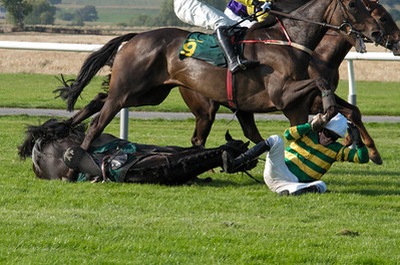
How Often Do Horses Fall in a Horse Race?
It's not something you want to see happening whether you have a bet on the horse that goes down or not, but it does happen from time to time, although as that stats in this article show, the frequency of fallers is decreasing.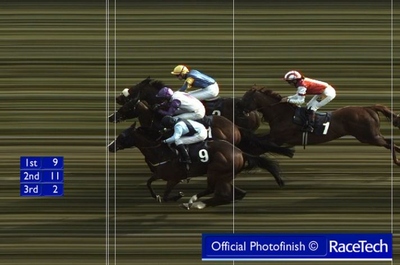
How Do Dead Heats and Photo Finishes Work in Horse Racing?
The terms dead heats and photo finishes come from historical methods used to judge very close calls, but how are these things decided today, and what happens to your bet in a true dead heat?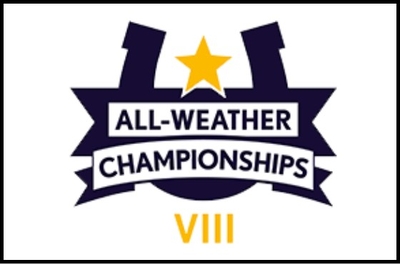
What are the All Weather Championships in Horse Racing?
All you need to know about the All Weather Championships is contained here. Perhaps not shrouded in history like traditional racing, this once dismissed event is now a real staple on the racing calendar.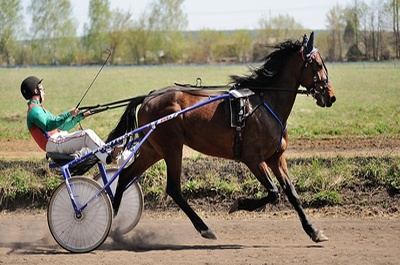
What is Harness Racing?
It might look a little odd to us British punters, but harness racing - or trotting as it is also known - is much more popular in other countries around the world. The rider sits in a cart instead of riding atop the horse in this style of racing, and the horse's gait is an important factor.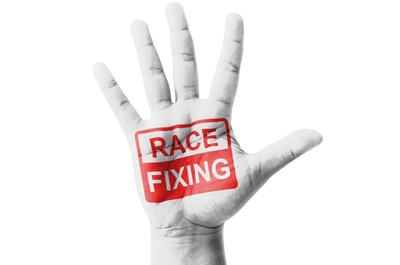
Is Horse Racing Fixed?
The sport of horse racing has had some bad press in this department, perhaps unfairly compared with other sports with an equal number of scandals, and although attempts at race fixing have definitely occurred is it fair to say the sport is fixed?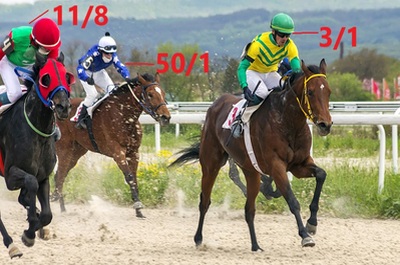
Is It Worth Betting on the Favourite in Horse Racing?
It's a debate as old as the sport itself: is betting on the favourite a worthwhile endeavour? There have actually been some very interesting research into this subject and the statistics are explored in this article. As always though, these stats only tell part of the story.
Ante Post Betting in Horse Racing
It's riskier to place a bet too far in advance, a lot can change in the run up to the race and your horse may not even end up running at all, but that's why ante post prices are more tempting - you can take home greater winnings if your guts bet comes in.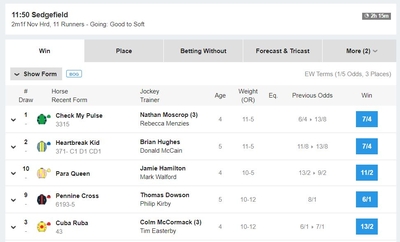
How to Read a Racecard
It can be baffling to the uninitiated, but the racecard holds key information about your horse and it's previous performances. It is actually much easier to understand that it may seem too, so with a little practice you will be able to scan the racecard in seconds and make use of the info within.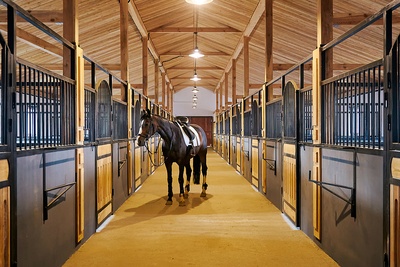
Non Runners in Horse Racing
You've studied the form guides, picked your horse and placed your bet, only for the nag to be withdrawn from the race. What happens in this and other similar scenarios is explained within.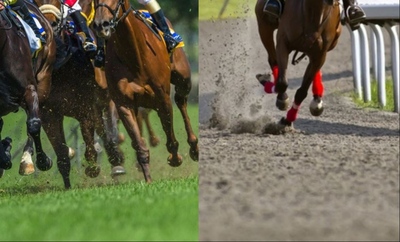
Track Surfaces in Horse Racing: Grass, Dirt & Synthetic
Did you think that all horse races were run on grass? Think again. In this country turf is the most common surface type but in hotter climates dirt is much more commonplace. There are even synthetic surfaces being used these days too.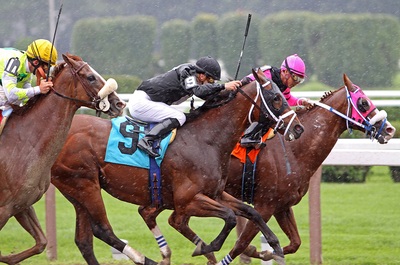
All Weather Racing Explained: Surfaces, Races & History
All weather surfaces might be a new concept for some readers, but in fact the first ever race held on an all weather surface was way back in 1966 in the USA. These days it is a much more viable idea, but it does have its setbacks and it isn't always popular with more traditional racing fans.
Lengthen the Odds With BetVictor
BetVictor offer punters a way to get better returns on their bet by predicting not just the winning horse but the winning distance too. Ideal when the odds on a dead cert are not much cop, or if you just fancy a challenge.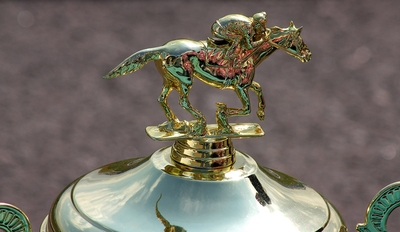
Trainer & Jockey Championship Betting in Horse Racing
It's not just the horses that you can bet on with horse racing, but the men and women riding and training them too. There are prizes for the most successful in their field, and there are prizes for punters who can predict the winners of these competitions too.
Tote Placepot Betting
The placepot, when used well, can offer up huge returns if it comes in. It's a bet that offers a greater chance to win but getting the balance right is key. Spend too much & you could lose value, spend too little & your chances decrease significantly.
Horse Racing Weights Explained
Arguably one of the more misunderstood elements of horse racing, the methods of and reasons behind adding extra weight to a runner make perfect sense once you look into them. This article explains all.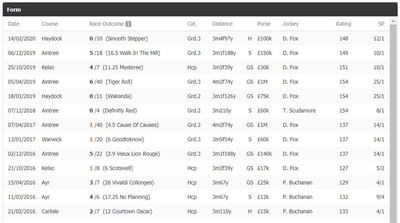
How to Study Horse Racing Form
The form guide can be an overwhelming sight if you don't know what you are looking at, but once you have learned a few simple codes it becomes the key to finding the perfect horse to bet on. Yet it doesn't always tell the full story.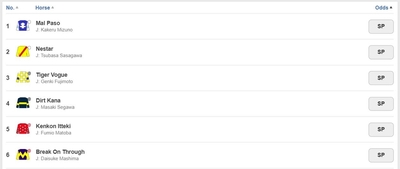
What Is the Starting Price (SP) & Should You Take It?
Choosing whether or not to take the starting price is a gamble in itself; will the price lengthen or shorten? But what exactly is the starting price, how is it formed, and is there a way to ensure you get the best odds?
Tote Jackpot Betting
Offer the great British public a chance to win big for low stakes & you will likely have a hit on your hands. That was certainly the case with the Tote Jackpot. But unlike the lottery, a combination of knowledge & research can squeeze increased value from this bet.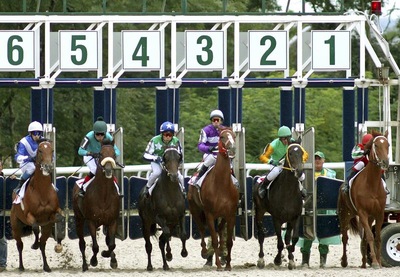
What Is Draw Bias & How Much Should it Influence Your Bets?
The draw might be random, but the effect it could have on the outcome of some races is undeniable. However, draw bias data isn't quite as cut and dry as it might first appear, and in some cases it ceases to be a factor at all. Learn how to tell the difference here.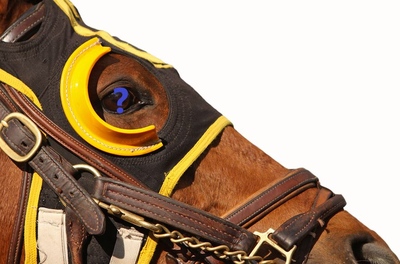
What is Unnamed Favourite Betting?
Taking the unnamed favourite might sound like a silly idea considering you have no idea which horse you are betting on at the time you place your bet, but if you know what you are doing it can actually be quite the savvy move.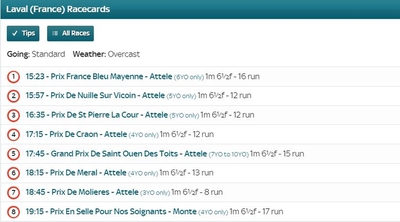
How Does Winning Distance Betting Work?
Most horse racing markets a fairly short lived, but the Winning Distances market can often span all of the races at a day's meeting. When you throw spread betting into the mix there is potential for big rewards, as well as bigger losses.
Scoop6 Betting
Guessing the outcome of 6 races on the trot is no mean feat, but if you manage it then a share of the scoop6 dividend is yours. This weekly bet has proved incredibly popular thanks to the low stakes & high potential return, but you don't actually need to be spot on to win.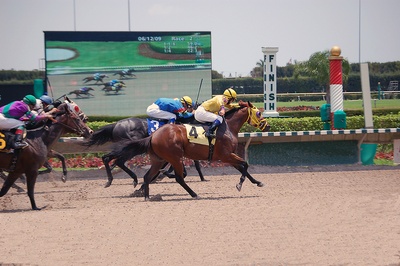
How to Bet on the Winner of a Horse Race
The most common and most easy to understand horse racing bet of them all, the race winner market. This one has been around since the dawn of time, but the art of actually finding a winner is not so easy, and getting the very best price is another factor to consider when betting on this market.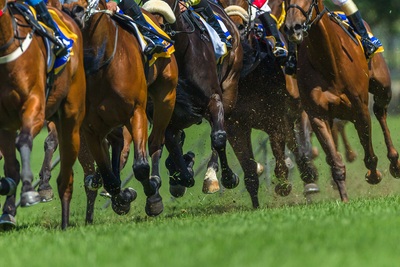
What Is the Going & Why Does it Matter?
When the going gets tough, the horses don't usually run. That might not as catchy a phrase as the one used in the 1988 Billy Ocean song, but it's certainly true of UK horse racing. But what exactly is 'the going' and how does it affect a race?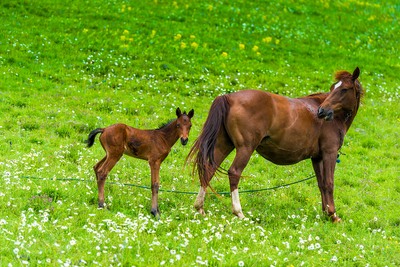
How do Horse Ages Work in Racing?
Unlike a lady, you should always ask a horse's age. It is much more than just a number and can even dictate which races the horse is allowed to enter. Using this information alongside a form guide is vital, and can be a good way to spot any red herrings or hidden gems.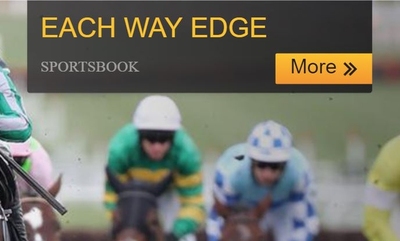
Each Way Edge: What Is It & How Does It Work?
Improving on the already popular Each Way betting market, Betfair offer their customers an 'Edge' by allowing them to customise the number of places included in the each way bet. This gives punters total control, but there are some terms to be aware of.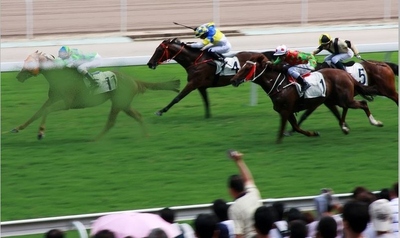
What Does 'Betting Without' Mean in Horse Racing?
For those races that have a clear favourite at odds so short it is hardly worth betting at all, the betting without market comes into its own. This market allows you to find value in the race by removing the favourite from your bet and evening out the field. Here's how it works.